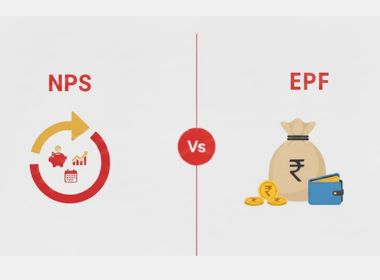Search Suggestions
- Gold Loan
- Money Transfer
- Mutual Funds

SIP vs SWP: Which Investment Plan is Right for You?
We are all aware of what an investment is, and there are no hard rules to make the right investments that are fruitful. The primary reason for someone making investments is probably to make huge purchases, which is significant for oneself, as well as for the upbringing of one’s family.
Table of Content
This type of huge investment can be related to buying a house, a dream car, or owning multiple flats and a plot of land. Doing this allows you to create even greater wealth, especially by owning fixed assets. However, the journey can be such a cliffhanger until you have scratched the surface of an array of investment options to generate wealth with huge funds, or you already have huge funds that give you the prerogative to make huge investments.
Irrespective of whether you have just started with investment plans or you have already made huge investments with your funds, and now need to withdraw your profits or funds. It is always a good practice to use more than one type of financial instrument as a tool for making investments. This can be mutual funds, stocks, shares, bonds, and more. Investing in more than one gives you a sense of security. Lastly, it is crucial to remember that investments in these financial instruments are subject to market risk.
A Synopsis of SIP
A systematic investment plan, also known as SIP, is a kind of strategic approach to making investments in mutual funds with a fixed amount of money at regular intervals of your choice. These intervals can be daily, weekly, monthly or quarterly. However, the most preferred interval is often once a month. SIP investments are for building wealth gradually and through discipline. You can also visit the official website of Muthoot Finance for a better understanding of what SWP is.
A Synopsis of SWP
A systematic withdrawal plan, also known as SWP, is a kind of strategic approach that involves the withdrawal of a fixed amount by selling mutual fund units. The profits or funds that you withdraw by selling these mutual fund units can be those that were accumulated from your SIP. Since it takes time to build wealth through SIP, it would be wise to invest a lump sum amount in mutual funds first and then build a strategic approach for withdrawal.
A Synopsis of STP
A systematic transfer plan, also known as STP, is a strategic investment approach that allows investors to move a fixed amount of money from one mutual fund to another at regular intervals. Unlike SIP, the capital requirements for both SWP and STP investments are ideal for those who can invest a lump sum amount. The only contrast is that it allows you to transfer your mutual funds, usually from a liquid or debt fund, to an equity fund.
Suggested Read: Top Reasons to Start a Mutual Fund SIP Before the Year Ends
Differences Between SIP and SWP
The only difference between SIP and SWP is that SIP involves buying mutual fund units, and SWP involves selling those units. Take a look at the table for comparison.
Parameters | Systematic Investment Plan | Systematic Withdrawal Plan |
Purpose | For making regular investments in mutual fund schemes. | For withdrawing a fixed amount at regular intervals from the investments in mutual funds. |
Advantages | Encouraging savings with discipline on a regular basis. Compounding may significantly boost your investment value. | Serves as a stable income stream with the potential of tax-efficient withdrawals and the continuity of investment. |
Flexibility | Offers the flexibility to choose your investment amount, frequency & scheme selection. | Offers the flexibility to choose your withdrawal amount and frequency. |
Strategy | For accumulating wealth. Ideal for investors looking to build wealth. | For the distribution of wealth. Ideal for investors and retirees who need regular income from their investments. |
Suggested Read: SIP vs. Mutual Fund: What's the Real Difference?
While choosing between SIP and SWP, it isn’t about which one is better. However, the decision must be based on your financial goals at different stages. A simple way to make this decision is to decide whether you want to grow wealth or need a source for regular income.
Muthoot Finance offers mutual fund investments, which can be tailored to individual financial goals, risk appetite, and investment timelines for optimal outcomes that you desire.
- Insurance
- Group Insurance
- Health Insurance
- Home Insurance
- Vehicle Insurance
- Life Insurance
- Travel Insurance
- Shop Insurance
CATEGORIES
OUR SERVICES
-

Credit Score
-

Gold Loan
-

Personal Loan
-

Cibil Score
-

Vehicle Loan
-

Small Business Loan
-

Money Transfer
-

Insurance
-

Mutual Funds
-

SME Loan
-

Corporate Loan
-

NCD
-

PAN Card
-

NPS
-

Custom Offers
-

Digital & Cashless
-

Milligram Rewards
-

Bank Mapping
-

Housing Finance
-

#Big Business Loan
-

#Gold Loan Mela
-

#Kholiye Khushiyon Ki Tijori
-

#Gold Loan At Home
-

#Sunherisoch
RECENT POSTS

Understanding Gold Bees: How it Works, Net Asset Value, Returns and More
Know More
Multi Cap and Flexi Cap Mutual Funds: How Are They Different?
Know More
Online Personal Loan vs. Offline Personal Loan - Which Is Better for You?
Know More
10 Tips to Improve Chances of Personal Loan Approval
Know More
10 Factors Affecting Mutual Fund Performance Explained Simply
Know More
10 Key Factors That Affect Your Personal Loan EMI
Know More
What Is Fine Gold? Meaning, Purity (999), Uses & Price Explained
Know More
Gold vs Silver: Which is Better as an Investment?
Know More
Why Gold Is a Safe Haven Asset: Meaning, Benefits & Real Examples
Know More
Gold or Bitcoin - Best Investment for Value Retention
Know MoreFIN SHORTS

The Best 7 SIF Funds of 2026: A Better Way to Invest
Know More
Gold Price Hits ₹1,40,000: How It Impacts Gold Loan Amounts
Know More
How to Check Loan Number: Step-by-Step Process
Know More
How to Open an SIP Account: Online and Offline Process
Know More
How Do I Apply for MSME Certification Online in India?
Know More
7 Important Reasons to Choose Hallmark Gold When Buying Jewellery
Know More
What Are Co-Pay and Deductibles in Insurance Policies?
Know More
Should You Take a Loan Against Your Mutual Fund or SIP?
Know More
Top 5 Best Mid-Cap Mutual Funds to Watch in 2026
Know More
Are Personal Loans Right for Retirees? Key Points to Consider
Know More
What Happens to a Personal Loan After the Borrower Dies?
Know More
Best Loan Choices for Credit Scores of 580 and Below
Know More- South +91 99469 01212
- North 1800 313 1212





